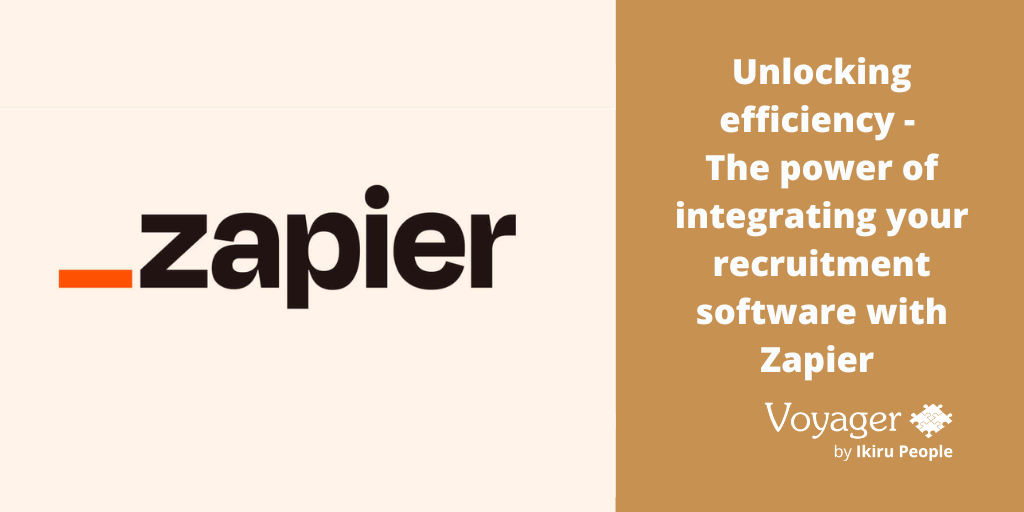It will be of interest to any agency placing contractors to hear about the ramifications of IR35 for recruiters.
Whilst all anticipated legal changes were delayed on account of the Coronavirus outbreak, they’re now scheduled to be implemented from April 2021. Rest assured, IR35 will still have a significant impact on how recruitment agencies operate from next year. And this time there is no escape.
How does IR35 affect recruitment agencies? What measures can they take to prepare during this one-year extension period? Read on and find out!
Some agencies see IR35 as a chance to upend the world of recruiting as we know it. However, others maintain it’s nothing to worry about, and that once all the excitement dies down, business will resume.
But for everything that’s been written on the topic, there’s still some uncertainty among a lot of recruiters regarding IR35. What is IR35, how is it going to impact recruiters and the contractors they place?
How does IR35 affect recruitment agencies?
IR35 is a government initiative which aims to put a stop to ‘disguised employees’. These are workers operating as contractors for tax purposes when they’re actually engaged in the same capacity as salaried employees.
HRMC defines IR35 as applying “if a worker provides their services to a client through an intermediary but would be classed as an employee if they were contracted directly”.
In simple English, the IR35 reforms are an attempt by the taxman to smoke out what are judged to be fraudulent contractors, choosing to work as contractors through personal service companies only because they are able to duck the income tax that comes with working as a directly salaried member of staff.

Why are recruitment agencies focusing on IR35 now?
IR35 isn’t new – it’s been around in the public sector for a while. Since April 2017 in fact.
What’s changing, and hence why everyone’s talking about it, is that in April 2021, for medium and large businesses, it will become the responsibility of the employer (‘fee payer’) to decide the IR35 status of the role and hence which rules apply.
This switches the onus to be compliant from the contract worker to whoever is engaging them, thereby changing the state of play a fair bit.
The level of concern in the recruitment industry is clear. A number of recruiters have written to the Government suggesting delay or reform and suggesting that the legislation as it stands is a threat to the UK economy. However, there is no expectation that the rules will change.
The letter has been signed by the chair of the Recruitment and Employment Confederation and 14 bosses from major recruitment organisations including Reed, Adecco, ManpowerGroup and Hays.
Inside or Outside IR35?
This is the big question for those concerned about the impact of IR35, and it’s one we’ve covered in more depth here. In short – if your agency is dealing with “genuine” contractors, then they are considered to be outside of IR35. Those inside IR35 are the ones who are only masquerading as contractors.
And those inside IR35 have reasons to worry!
Can IR35 lead to fines for recruiters?
By moving the responsibility for determining the IR35 status of a role to private sector employers, HMRC has also transferred any penalties for getting it wrong.
This means that employers could potentially face bills for unpaid tax and National Insurance contributions. It’s in the event that contractors are, in effect, ‘disguised employees’ who shouldn’t be contracting at all.
This has sent some early tremors through the contractor community already (notably HSBC culling contractors in anticipation of the big HMRC clamp-down), and recruiters have been frantically discussing how the upcoming change will impact their work and agencies.
As with any shifting of rules, most employers are still trying to figure out how IR35 impacts them. And, as partners in the sourcing and engagement of contract staff, recruitment agencies and their clients are in lively discussions. This is regarding working out who owns which responsibility for ensuring compliance and avoiding potential fines and disturbances for breaching payroll rules.

Is IR35 for recruiters going to go away?
It certainly doesn’t look like it any time soon.
IR35 has existed since 2000. It’s been in more effective use in the public sector since 2017. And it is (in effect) just getting going in the private domain.
As with any major regulation change (such as the GDPR), there is planning, work, and effort going into implementing the new system. This makes it highly unlikely that IR35 will simply ‘blow over’ and leave everything as it was before.
More realistically, IR35 marks a long-term change in the way the government and the tax authorities view contract work. This calls for a meaningful response from the contractor community – whether agencies, employers or contractors themselves.
Does IR35 mean an end to contract recruitment as we know it?
No, almost certainly not.
But it does mean that professional contract recruiters should build compliant working practices that expert partners support. Or risk losing contracts, clients and market share as those who follow such practices outmanoeuvre them.

How can recruiters prepare themselves for IR35?
The best steps recruiters and recruitment agencies can take to stay on top of IR35 are to ensure they work with partners and providers who truly understand the details of the legislation, how it applies and how it will affect recruiters.
We have invested considerable time talking with lawyers, accountants and recruitment agencies to understand the ramifications of IR35 for recruiters. We’ve invested heavily in our CRM software to provide strong support to recruitment agencies wishing to stay compliant.
Many recruiters are simply putting their fingers in their ears and hoping that IR35 fades away like a bad dream. In reality, it’s here to stay. Businesses need to take adequate professional measures to protect themselves from nasty surprises.
At Voyager Software, we have our Mid-Office software solution for recruitment firms who are struggling to comprehend the implication of IR35 and how to navigate the intricacies in their back-office work. Recruiters will find that Mid-Office:
- Allows placements to be flagged as within IR35 either manually or read as part of import from a front-office product.
- An optional business rule is available which ensures no timesheets are confirmed until their associated placements are checked as outside IR35 or flagged as being off-payroll, and hence subject to relevant processing.
- For off-payroll assignments, deduct tax and NI at source within Mid-Office to calculate the net pay due to the contractor.
- Integrates with payroll software for RTI reporting compliance.
- Produces purchase invoices/remittances showing the breakdown of pay and tax/NI deductions.
- Integrates with accounts products to post-purchase invoices.
- Depending on accounts software, either allows automatic posting of tax and NI figures (including Employers’ NI) or outputs reports of figures to allow for manual journals.
2020 IR35 Review and impact of Coronavirus – Update
The Conservative government announced a review of the changes to IR35. It had subsequently clarified this review will not lead to a delay in, or any changes to, the IR35 legislation.
However, the Coronavirus outbreak has pushed back the enforcement of IR35 in the private sector to April 2021. There had already been lobbying for an extension of the implementation date. Most companies were not ready for this change in legislation. There were huge changes in how temps are categorised, checked and ultimately paid and billed. So this is hugely welcome news.
There’s no change in the IR35 rules. So agencies still need to amend the way they operate. And this will see a potential shift in the employment type of contractors. The extension allows anybody in the private sector the time to implement systems which cater for the changes. They can train their staff and prepare for the new date it comes into effect.
As a result, contractors and recruiters should assume that IR35 will affect them and prepare for it based on the extended deadline of April 2021.
How can we help?
Voyager Infinity and Voyager Mid-Office are software solutions that make Recruiters’ lives easier. Voyager Infinity is a CRM used by thousands of recruiters globally to source, nurture and maintain the relationships with their clients and candidates, and Mid-Office manages the entire Pay and Bill process (IR35 ready).















